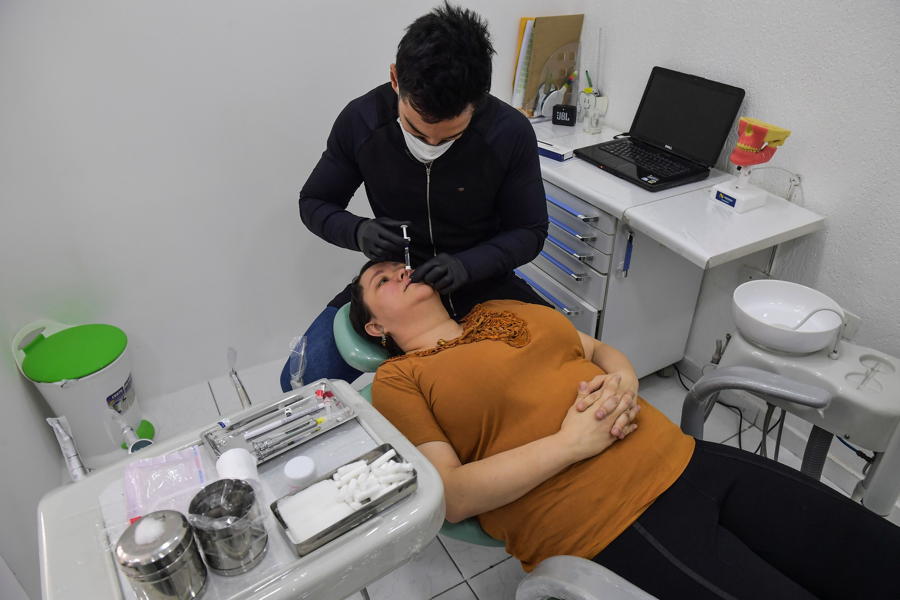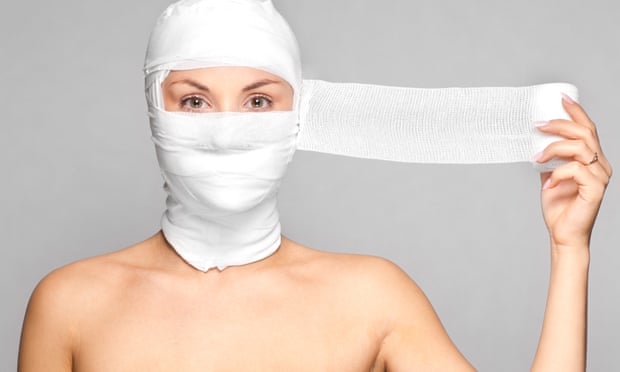Regiane de Oliveira Sousa, a 38-year-old sales representative from São Paulo, has used her stint of working from home to improve her personal beauty. Over the past six months she has had time to get cosmetic skin peels, breast reduction surgery, liposuction to remove unwanted fat, and facial harmonization treatment. “Friends of mine have also taken advantage of teleworking to do these surgeries,” she told AFP.
“When we stay at home, we have more time to look at ourselves in the mirror, because we no longer have this hectic life, where we move around constantly,” said de Oliveira Sousa, who is about to receive a lip-plumping acid injection at a clinic in an upscale São Paulo neighborhood.
Cost of the procedure: 3,800 reais (around $730), or almost four times the monthly minimum wage in Brazil.
“Significant increase”
Her surgeon, Cintia Rios, said there has been a significant increase in cosmetic operations this year, about 40 percent more compared to what was done before the pandemic. “I had to lengthen my work hours and I hired three employees. Beauty is not in crisis, thank God!”
According to Rios, otoplasties – cosmetic ear surgeries – are also popular because people feel that wearing a face mask makes their ears stick out. Usually such surgery is for children around the ages of eight or nine, “but this year, many adults are doing it.”
Boom in lip procedures
Lips are also important, adds de Oliveira Sousa, “because during telework videoconferences we see each other permanently on the screen.”
Rios’s clinic was forced to close from March to May due to strict lockdown measures to control the spread of the coronavirus. Today, however, business at the clinic is booming.
“We had the impression that it was the end of the world,” said orthodontist Thiago Aragaki, referring to the lockdown period. Aside from his dental work he performs simple cosmetic procedures, such as botox injections to eliminate wrinkles, at his office in a working class neighborhood east of São Paulo. “We reopened in June, with all the necessary precautions. Some patients have stopped coming, but we’ve had new requests,” especially for lip augmentation injections, he said.
That’s exactly what Rita Monteiro Meireles, 34, came to his office to do. She sees the confinement as a chance to use her savings to carry out cosmetic surgery enhancements that she has dreamed of since her divorce three years ago. “I didn’t like my face, and after getting a bichectomy (surgery to remove cheek fat) I was the happiest person in the world,” she said. Monteiro Meireles smiled as she looked at her new face in a handheld mirror, her lips still swollen after the botox injection.
Plastic surgery may serve as a palliative during times of anxiety and uncertainty, said Henriette Morato, a psychologist at the University of Sao Paulo. “It’s a way of demonstrating more control over your own life, to change what is still possible,” she said.
“Atypical year”
Even though some cosmetic surgery clinics have seen demand for their services increase, “not everything is rose colored,” said Denis Calazans, head of the Brazilian Society of Plastic Surgeons – especially because of the multi-week lockdown earlier in the year.
“It’s an atypical year,” he said. “We should be showing figures lower than those before the pandemic” for the entire sector, he said, even if clinics offering simple procedures have done well. Working at home and saving on money otherwise spent on travel or outings has allowed well-off Brazilians “to invest in themselves,” he said.
Brazil is the world leader in plastic surgery procedures, with 13 percent of the global market, according to figures from the International Society of Plastic Surgery.
But when all cosmetic procedures – including non-surgical procedures such as botox injections – are included, it comes in behind the United States.




